Perennial: A story of compassion brought about by mavericks
21 May 2024
4 min read
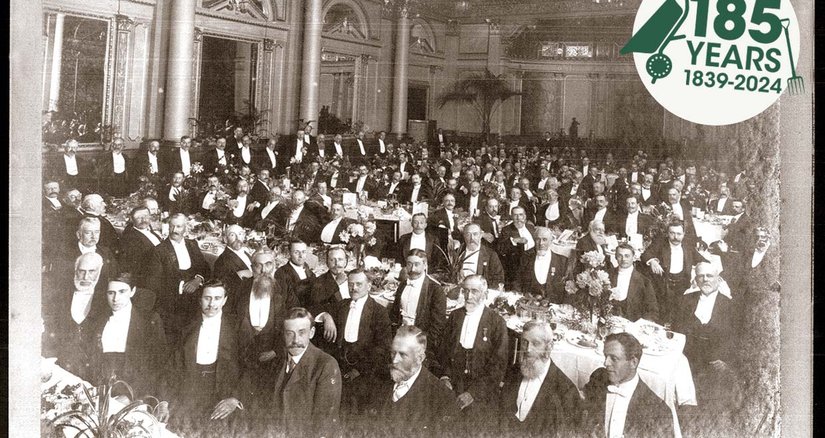
This year marks a significant milestone in the history of Perennial, formerly known as The Gardeners’ Benevolent Institution, as we commemorate our 185th year of service to the horticulture community. Founded on January 17, 1839, during an annual dinner for 'nurserymen, florists, and amateurs' at the Crown and Anchor Tavern in London, our charity has a rich history deeply rooted in compassion and support for gardeners.
From our inception, the Gardeners’ Benevolent Institution set out with a noble purpose: to provide financial assistance to gardeners, particularly head gardeners, in their retirement years. This initiative stemmed from a recognition that many individuals who dedicated their lives to tending to estates and public gardens faced financial insecurity in their later years. Despite their lifelong dedication, low wages often left them without the means to support themselves after retirement, leading to the loss of their tied property and financial struggles.
Over the past 185 years, we have remained steadfast in our commitment to helping individuals within horticulture. Through various programmes and initiatives, we continue to provide essential assistance to those experiencing hardships, ensuring that they can live with dignity and security during their working lives and retirement years.
As we reflect on our journey spanning nearly two centuries, we are reminded of the enduring impact of compassion and community support. Perennial's legacy serves as a testament to the power of collective action in uplifting and empowering individuals within the gardening community. As we look ahead to the future, we remain dedicated to our mission of providing assistance, guidance, and support to gardeners across the nation, honouring the spirit of compassion that has guided us for 185 years and counting.

We need your support
We're calling for your support in this unique year. Let's Dig Deep for Perennial with a year-long fundraising campaign. This is your chance to make a real difference to industry lives.
Dig DeepOriginally called the Gardeners’ Benevolent Institution, our creation was first proposed in 1839 by George Glenny who was a florist, garden journalist and agitator. A true maverick of his day. His motive and reasoning was little more than that other trades had a benevolent fund, and it was reported as: ‘While the butchers, bakers, drapers and almost every other class of tradesmen had their benevolent associations, he expressed his surprise that none had hitherto been attempted for so scientific and useful a body as the gardeners, [and] he did not know of any class who had so great a claim.'
Being set up as a friendly society, our key purpose was to dispense pensions, and our past is filled with stories of people who we’ve helped and those who have helped us. Modern society may have evolved since our creation, but the struggles people faced back then were real and sadly too similar to many challenges faced by too many people today. The Institution remained a pension-granting body for 100 years until state pensions were introduced in the early 20th century.
In this article Jonathan Sharpe, Perennial Marketing Manager, ventures into our archive with garden historian and Perennial archivist Francesca Murray to bring to light the lives of real people and businesses from the early part of our past and to share their captivating stories.
The first pension is awarded
The first gardener to be awarded a pension, in 1840, was John Standen, an estate gardener born in 1780, from Steyning in Sussex. Two years later Sarah Attlee, née Franklin, was the first widow awarded a pension in 1842. She was the widow of nurseryman William Attlee, and the 1841 census shows her living surrounded by gardeners in Hollow Road, Beddington, Croydon.
Persistence finally pays off
Those who applied to receive a pension weren’t always successful, with many people applying year after year. Edward Marshall, a Northumbrian gardener from Alnwick, persisted in his efforts. After thirteen attempts, in 1854 he finally achieved success. His case was helped after an appeal was published in the Gardeners’ Chronicle for the lengthiest applicants to be considered for immediate election. Regrettably, he passed away two years later in 1856 aged 76.
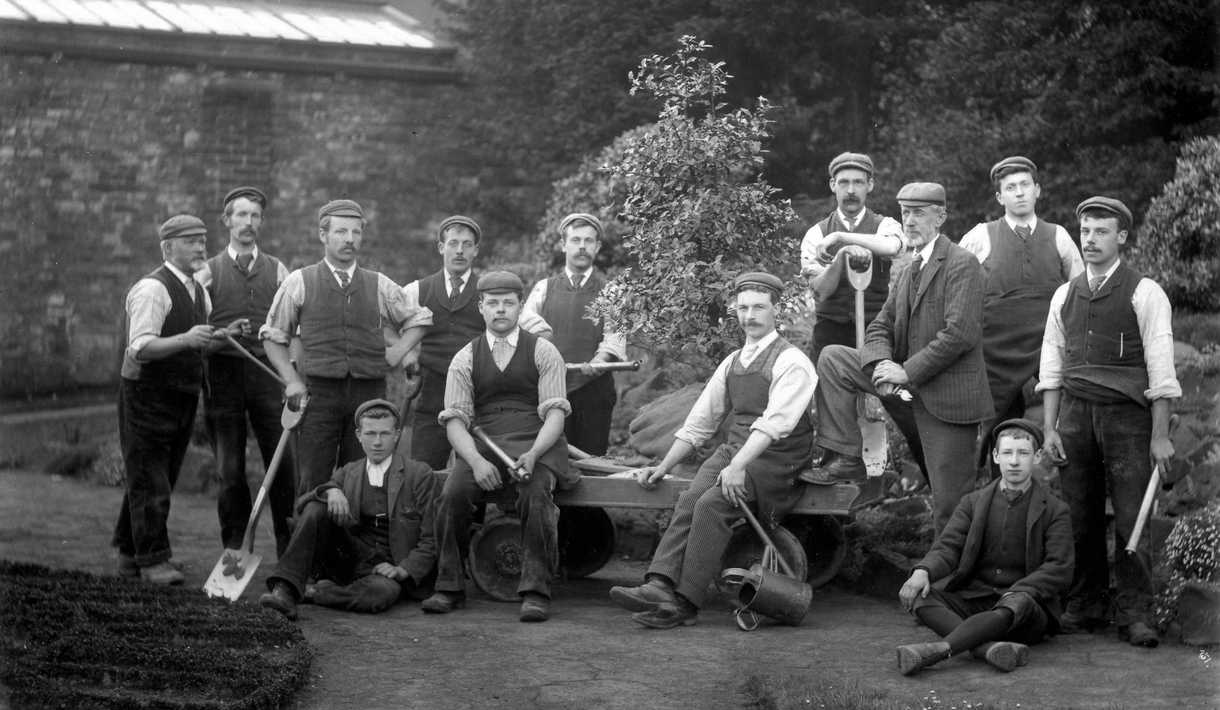
The changing life of a gardener
An example of the changeable nature of a gardener’s life is found in Thomas Elsley, who was originally awarded his pension in 1897. The son of a gardener from Puttenham, Surrey, he had been a gardener all his life. Having worked as a domestic gardener in Hampshire and Bromley he ended up at Great Barr Hall in Staffordshire, working for the widow of the 3rd Baronet, Lady Mildred Bateman Scott. In the 1901 census, Elsley was listed as a market gardener.Elsley was severely disabled when his application was successful in 1897 after being a life subscriber for 16 years; he had donated a total of £7 8s to the Institution. His circumstances changed in 1900, and he relinquished his pension on receiving a small legacy.
Elsley wanted to ensure that he could resume his pension if the legacy did not continue and it was resolved in the treasurer’s letter to him that ‘if ever you should be in a position to do without the pension and gave it up voluntarily and should need it again in the future, you would be put on the funds again without expense of the election’. He was reinstated on the pension list in 1903.
copyright: RHS Lindley collections
Mary Milley
Mary Milley received a pension in 1890 following the passing of her husband, William Milley, in 1852. William had served as a gardener to the Duke of Beaufort for thirteen years. Mary earned her living by needlework until she became almost blind. Upon receiving her initial pension payment, she promptly underwent cataract surgery for both eyes. On seeing her photograph (which had been taken for a special reason), she was delighted and exclaimed, “That’s old mother Milley sure, with her basket and stick, but what a beauty! Well, I do look a staunch old body. Oh it’s me exactly, with its poor furrowed face, but God has been very good to me!”
Mary was extremely thankful for the benefits she received and passed away in February 1899 aged 90.
In the early part of our history, we had the help and support of numerous notable individuals, nurserymen and those connected to the world of horticulture.


The William Thomson Memorial Fund
The William Thomson Memorial Fund was proposed by Scottish gardeners after the death of William Thomson, head gardener to the Duke of Buccleuch at Dalkeith, near Edinburgh. In February 1895, Charles Stewart, Honorary Secretary of the Royal Caledonian Horticultural Society (CHS) proposed to Edward Cutler (the Institution’s Secretary) that rather than awarding memorial medals, it was better ‘to hand over part of the sum raised to your institution’. This was not an unrestricted gift, but a proposal for Scottish candidates to have the right of election to a pension for one Scottish gardener or widow per annum in perpetuity. This extended the Institution’s influence in Scotland and the Institution did not hesitate to allow the CHS preferential voting rights in lieu of the donation.
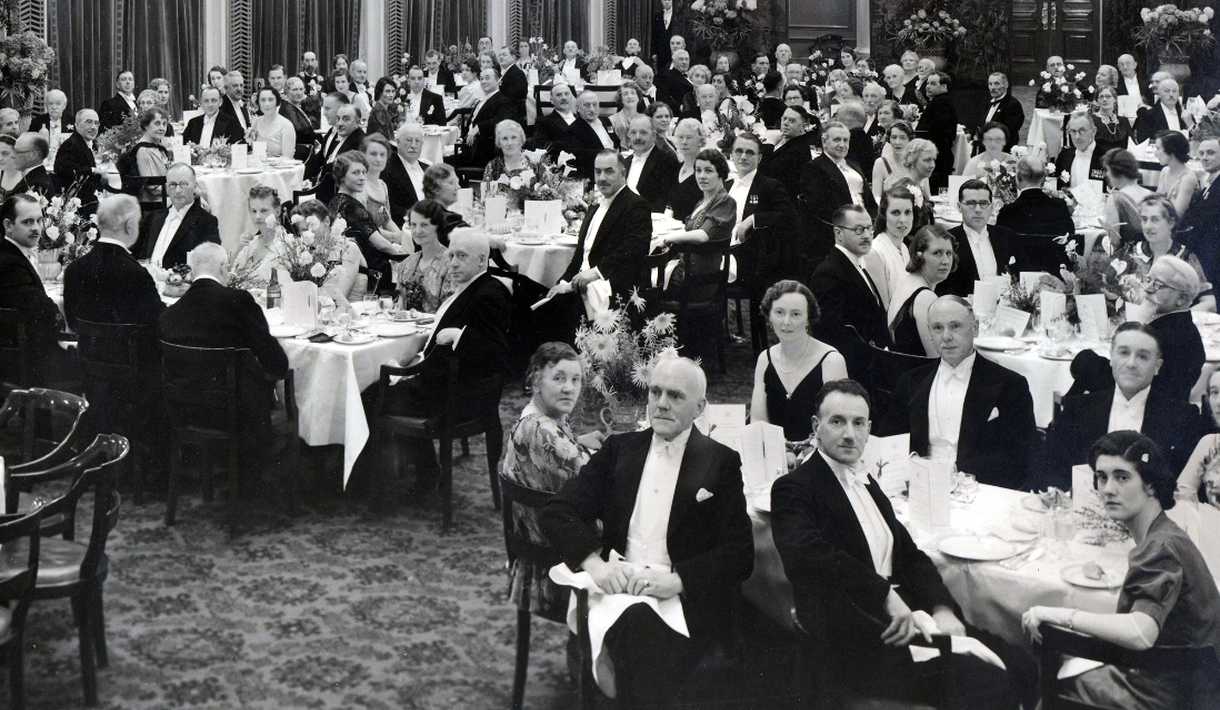
Festival Dinners
In 1851 Joseph Paxton, who is best known for designing the Crystal Palace and cultivating the Cavendish banana, was a prominent supporter of the Gardeners’ Benevolent Institution. It was Paxton’s involvement which brought about the Royal patronage via Queen Victoria and it was Paxton who hosted the well-documented Annual Festival Dinners for the charity in the significant year of 1851 and again in 1856. Other notable presidents of the Dinners include Charles Dickens (1852), Sir Robert Peel (1867), Joseph Chamberlain (1891) and The Duke of Westminster (1905).
The competitive edge
Sir Harry Veitch was one of the most successful nurserymen of the Victorian age. As well as being the head of the family business, James Veitch & Sons (one of the leading nurseries of the time), he was also Treasurer of the Institution for 25 years. To ensure he had the competitive edge over his rivals, he sent numerous plant collectors across the world to search for new species. In 1912, Veitch was knighted for his pivotal role in founding the Chelsea Flower Show and for his outstanding contributions to horticulture, making him the first horticulturist to receive such an honour.
Pineapple Place Nurseries
Growing pineapples has appealed to estate owners and skilled gardeners since the 17th century. Due to the challenging conditions for growing pineapples in the UK, along with the associated costs, they quickly became emblematic of status, wealth, and prosperity. Hence, they are frequently featured in stonework and grand gates. Edward George Henderson was a nurseryman whose family firm owned numerous nurseries including the wonderfully named nursery on Pineapple Place in St John’s Wood. Henderson’s Pineapple Nursery has been described as one of the great Victorian nurseries, and as a business they were big supporters of the Institution, sat on many committees and supported numerous candidates through the pension award process.
As we look back at the difficulties of the past and see the challenges people still face today, it’s clear that some things haven’t changed. But through it all, we’re still here, offering support, assistance and guidance to those managing similar issues. With the incredible backing of our supporters, we're determined to keep going for another 185 years. Thank you for being part of our journey.
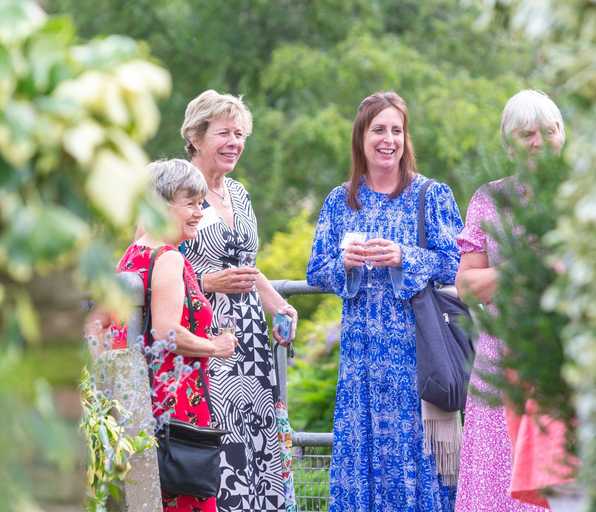
Become a Friend of Perennial
Join as a member for unlimited visits to our gardens.

Fundraise for us
Let's Dig Deep for Perennial with a year-long fundraising campaign. This is your chance to make a real difference to industry lives.
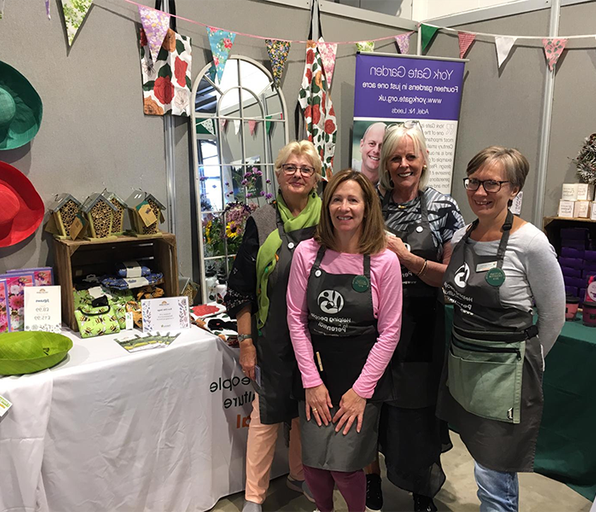
Bloom as a volunteer
Volunteers are part of the backbone of Perennial; we simply couldn’t exist without them. Come and be part of this wonderful community.

